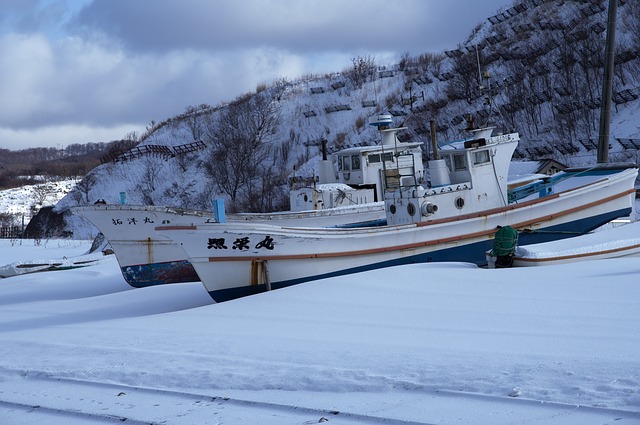
Keep reading to learn more about the dangers of not winterizing your boat.
If you live in an area with freezing temperatures, you must winterize your boat. Failing to winterize can cost you money and time with avoidable repairs. When you don’t winterize your boat, water freezes and expands, damaging anything trapped inside. Acidic and corrosive wastes, salt, and corrosion buildup can damage delicate engine parts. Fuels break down or grow dirty. Mold and mildew take root, and you may return to a boat in the spring that you can not use because of multiple system failures. A lot can go wrong, and most of it is about water freezing where it doesn’t belong. Keep reading to learn more about the dangers of not winterizing your boat.
Engine Damage
If the seawater lines of your engine are not drained, it can suffer from cracked parts. Anything from heat exchangers to the engine block itself could crack and split open. Saltwater will freeze and expand into closed spaces. At best, you’ll only blow a hose off its fitting or split it open. At worst, you’ll destroy the engine. Freshwater-cooled engines with inadequate antifreeze can also freeze and crack. If only water is used for cooling, the risk is much higher. A mix of antifreeze and water can prevent this.
Dirt and Corrosion
Dirty oil contains acidic contaminants, and salt can cause many problems with corrosion. Leaving unchanged oil and an unflushed engine may not break your engine right away, but it can cause damage, which may shorten the life of your engine or reduce its efficiency. Cleaning and fogging engines mitigate these risks.
Mechanical systems left sitting with corrosive waste products and dirt on them will suffer from it. Even if you are bringing your boat into a heated garage for the winter, the lack of motion in the engine can cause buildup and problems where that waste sits if the oil isn’t changed and the engine isn’t flushed.
Fuel Issues
Gasoline degrades over time as different weight compounds separate and evaporate. If you have ethanol in your fuel, it can absorb water if left for the winter. Unstabilized fuel can lead to gumming, deposits, dirt in the engine, and difficulty starting and running.
Diesel has different risks. Algae can grow and cause clogged filters and injectors. Tanks left almost empty or half full are more prone to biological growth than tanks filled with biocide-treated fuel.
Lithium Battery Problems
Lithium batteries have different storage issues from lead-acid batteries. They should be stored at 50% discharged with all loads disconnected. Storing fully charged or discharged lithium batteries may affect their longer-term life cycle length and charge capacity. While lithium batteries will not freeze like lead-acid batteries, their performance degrades at low temperatures, and charging a lithium battery below 32°F (0°C) may damage it.
Marine Electric Systems, LLC is a Leader In the Maritime Industry
We here at Marine Electric Systems have over 30 years of industry experience. You can trust our team for reliable service and expert craftsmanship in the Maryland, Baltimore, Annapolis, and Baltimore city areas! We’re highly certified and adhere to all ABYC and NMEA regulations. We specialize in top-notch electrical solutions for recreational, commercial, and government boating clients. Anything from electrical refits, to navigation systems, or boating maintenance. To stay up to date on our services, follow us on Facebook, LinkedIn, Pinterest, Instagram, and YouTube. You can also contact us at 410-263-0807.
